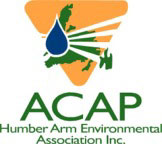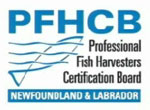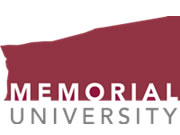
Community - University Research for Recovery Alliance

Humber Arm Environmental
Association Inc.

Professional Fish Harvesters
Certification Board 
Western School District
![]()
Bonne Bay Marine Station

Marine Institute

Memorial Unveristy
Distance Education
Lessons for the Future
Books to Boats
The Community-University Research for Recovery Alliance (CURRA) was a 7-year research program of innovative, interdisciplinary research projects related to helping communities and organizations along Newfoundland's west coast develop strategies for the recovery of fish stocks and fishery communities.
The CURRA Legacy: Lessons for the Future is a collection of interactive lesson plans based on research completed by the Community-University Research for Recovery Alliance (CURRA). These lessons are intended to inspire interest and stewardship amongst intermediate and senior students with regards to the fisheries of western Newfoundland.
|
Lesson |
Content |
Downloads |
|
The American Lobster |
Overview: Students will complete a "Jigsaw" activity investigating the conservation measures being attempted to ensure a sustainable American Lobster fishery for the west coast of Newfoundland. Course(s): Science 1206, Biology 2201, Environmental Science 3205 |
|
|
Biodiversity |
Overview: Students will use food webs to analyze the importance of biodiversity within an ecosystem. Course(s): Science 1206, Grade 7 Science, Environmental Science 3205 |
|
|
Community Radio |
Overview: Students will complete a mini-research activity on the Voice of Bonne Bay community radio station. Students will then be responsible for creating their own radio programs and performing them (in front of class, recorded, or on air). Course(s): English Language Arts Grade 7 & 8 |
|
|
Fisheries and Tourism |
Overview: This lesson will encourage students to discover the interconnectedness of tourism and the fisheries industry in rural west coast Newfoundland. Course(s): Environmental Science 3205, Newfoundland and Labrador History |
Fisheries and Tourism LP.docx |
|
Food Security |
Overview: Students will use information from their own households to explore the patterns of food retrieval and consumption in the Bonne Bay area. This exploration will lead to the discussion of food security in the area as well as the subsequent impacts on the environment. Course(s): Environmental Science 3205 |
|
|
Invasive Species |
Overview: Students will participate in an activity that demonstrates the effects of invasive species on the native species, and the overall biodiversity, of an ecosystem. Course(s): Grade 7 Science, Science 1206, Environmental Science 3205 |
Invasive Species LP.docx |
|
Oil & Gas |
Overview: Students will perform research and use posters to promote and defend their position on the development of offshore oil and gas along the west coast of Newfoundland. Based on information gathered for their posters, students will then debate the issue. Course(s): Newfoundland and Labrador History, Environmental Science 3205 |
Oil and Gas LP.docx |
|
Overfishing |
Overview: Students will start by completing the "Fishing in Bonne Bay" activity. This activity will introduce the idea of sustainable resource harvesting by modelling unsustainable fishing practices and the effect of more efficient technology on the fish populations. Course(s): Science 1206 |
Overfishing Sustainability LP.docx |
|
Rural Youth |
Overview: Using the research conducted on the coastal community of St. Paul's, students will be able to explain migration in terms of push and pull factors as well as relate migration patterns to economic, political, social, and environmental influences. Students will also gain an understanding of what a location needs in order for them to live. Course(s): Geography 3200/3202 |
|
|
Wolffish |
Overview: Students will participate in a stakeholders meeting in order to explore the process and effects of designating all three species of wolffish in Newfoundland and Labrador. Course(s): Environmental Science 3205
|
Books to Boats
The Humber Arm Atlantic Canada Action Program (ACAP) "Trading Books for Boats" has introduced an interactive marine science education program for high school students on marine ecology into the high school curriculum. This program is currently offered from the Bonne Bay Marine Station and is jointly funded by the regional school board and DFO. We will use this initiative as a model for a Trading Books for Boats program to be delivered at Bonne Bay designed for students in Grades 11 and 12 with a focus on fisheries and fish behaviour.
Researchers and Partners
Facilitator:
Barbara
Neis
Community Partners:
Terry Pike
Margaret Mckeon
Western School
District
Sheldon Peddle
Atlantic
Coastal Action Plan - Humber Arm
Mark Dolomount
Professional
Fish Harvesters Certification Board
Fiona Cuthbert
Bonne Bay Marine Station
Community Radio Interviews
Fiona Cuthbert discusses the Trading Books for Boats program with Ivan Emke.
Interview during the Cow Head Community Radio Broadcast, May 2008.
 |

|
 Marine Station
Marine Station